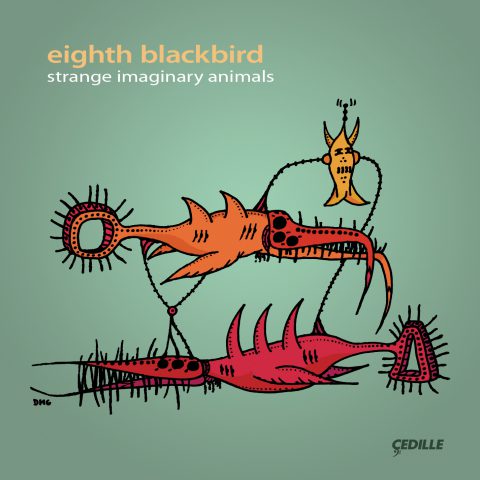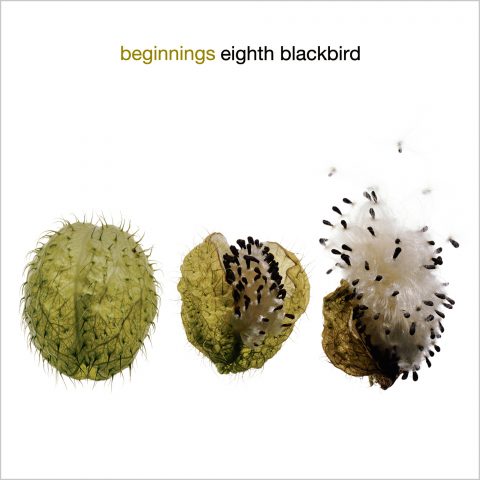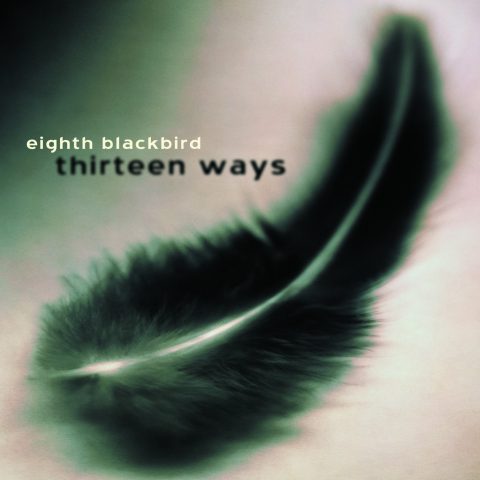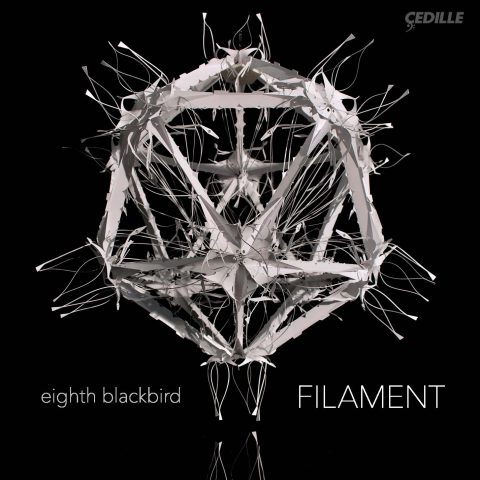| Subtotal | $18.00 |
|---|---|
| Tax | $1.85 |
| Total | $19.85 |
Store
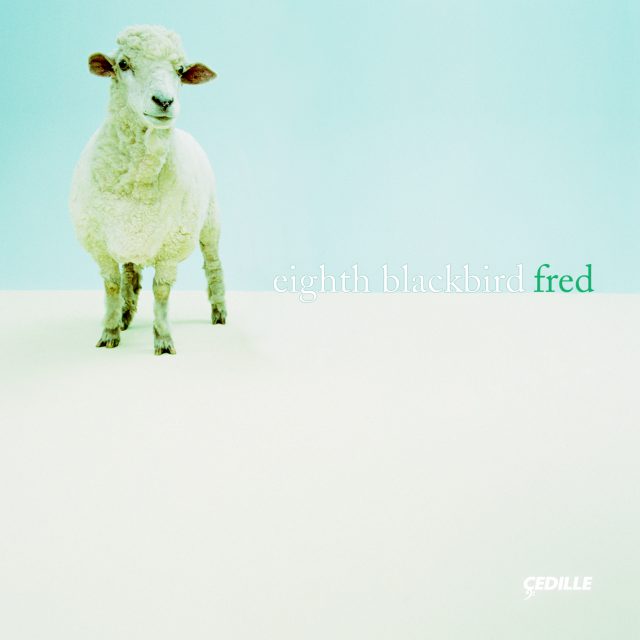
Store
fred: Music by Frederic Rzewski
On fred, the celebrated contemporary music sextet performs sparkling works showcasing the broader chromatic palette of an American master best-known for his piano music.
The program is imbued with the composer’s eccentric spirit, improvisational surprises, and social conscience: eighth blackbird’s propulsive new arrangement of Rzewski’s dramatic Coming Together, in which music accompanies the text of a letter by an inmate killed in the Attica prison uprising of 1971; the energetically playful “musical game” Les Moutons de Panurge; and the world premiere recording of Rzewski’s inventive Pocket Symphony, written specially for eighth blackbird.
Preview Excerpts
FREDERIC RZEWSKI (b. 1938)
Pocket Symphony
Artists
8: arr. Matt Albert
Program Notes
Download Album BookletInterview with
Notes by
Interview with Frederic Rzewski recorded June 12, 2004 at Christys Rathskeller in Cincinnati, Ohio, transcribed by Lisa Kaplan
K: Can I just ask how you got the idea to write a piece based on the Les Moutons Fable?
F: Frans Brueggen, the Dutch recorder virtuoso, who is now a conductor with the orchestra of the Age of Enlightenment…
A: Okay….
F: I guess it’s called. He had a group at that time called Sour Cream
K: Sour Cream
F: Yeah, recorder players. Him and some of his students I guess.
K: Uh huh.
F: And uh, he asked me to write a piece for his group. And so……. I don’t know why I did this because actually there’s really nothing you know, relevant to the recorder in this piece, but it just happened to be what came out at the time. That was in September of 1968. I remember I was walking down the street in Paris near the Ecole Militaire and I had just bought one of these Philips micro-cassette recorders. They had just come out. And I was having fun, just you know, playing with it. And I was walking down the street and you know I just whistled this tune, and recorded it on this machine and then I played it back and I liked the tune and I was trying to think how can I make a piece out of this and I don’t know anymore why I chose that particular idea. I remember that um, well I was in Paris and I’d been to a party and somebody spoke about Les Moutons de Panurge and I thought “what’s that?” and they explained to me what this expression means. It means, in French people use this expression, it means like “jumping on the bandwagon” or something. And…..
A: The phrase “Les Moutons de Panurge” means that?
F: Yes, yes. You say something is “les Moutons de Panurge” it means this guy has nothing original to say he’s just following other people.
F: It’s a literary figure of speech because it refers to Rabelais. And so, I had read Rabelais before, but I had never read that particular passage and so I went and re-read the Pantagruel and it struck me that there was this idea there. Also I knew that Picasso had done a series of paintings in which, a series of, now I really don’t know, I’m not on solid ground here because I really don’t know what I’m talking about, but it’s something I remember that Picasso did. He had taken a bunch of famous paintings and chopped them up into pieces and…
K: …and made them into a new version of a painting?
F: Yes. Besides, and it struck me that you could take, that you could make a piece by building it up this way.
A: And that’s just the tune, as it occurred to you, as you wrote it?
F: Completely. That tune is absolutely what I whistled walking down the street.
A: Really?
F: I didn’t change it at all.
A: You whistled a 65-note tune…
F: Yes
A: …In f minor slash major?
F: Yes.
A: Okay. (laughter)
F: Yes, and then I transcribed it. And I think of course, I’ve lost the original recording.
A: Of you whistling?
F: Yeah, I don’t know what happened to it.
B: That’s too bad.
A: That would be fun.
F: But I remember I transcribed…really.. I mean as best as I could. It’s a literal transcription of that moment…..and I just thought, well it might be interesting to apply this completely mechanical procedure to it. (laughing) because this was like a week before the concert or something.
A: Really.
F: I had to go to Amsterdam and I had to deliver this piece.
A: And what was that concert?
F: It was in the Concertgebouw…
A: Okay.
F: …of Amsterdam and that was interesting too, the concert. It was in the Kleine Saal, the small hall of the Concertgebouw…
A: Okay…
F: ….and I think you know, they didn’t rehearse it at all it was like something, you know this business about having people come with instruments. I think you know, we gave instruments to people in the audience. And the audience was mostly hippies and you know, Dutch hippies and…
A: And when you say “they”, who was performing it?
F: Frans Brueggen and his friends.
A: Okay, got it.
F: there were…I don’t remember how many people there were, there were probably 7 or 8 people playing plus the audience.
A: Uh huh.
F: And you know everyone came, Louis Andriessen and Mischa Mangleberg and the whole crowd was there, and we cooked up quite a storm I remember.
A: (laughter)
F: And the funny thing was also there was a real classical concert going on in the large hall next door…
A: Okay.
F: …and we made quite a bit of noise.
P: (laughter)
F: I remember also the intermission of the two concerts happened to coincide and the two audiences came together in the bar and it was very interesting this combination, because there were these very bourgeois Dutch people who had gone to the straight concert, and then there were all these hippies who were smoking dope, and they were all together. You know that was quite an unusual scene in….I think this was March 1969.
A: Yeah, we’ll find out. Well why don’t we move on and talk some about the next piece chronologically, Coming Together and what inspired you to write that and how you wrote it the way that you did, that one.
F: I was living in New York in….I went there in early ’71. I was living in New York when the uprising took place…
A: In Attica?
F: …in Attica, and of course, like many people, I was horrified. I certainly didn’t think about making a piece of music until I read in Ramparts magazine I believe in November of ’71. Two months or so after the fact- Ramparts magazine, which no longer exists, but at that time it was a left-leaning magazine, published some letters by Sam Melville.
A: Okay
F: who was killed, who was murdered actually. Now there’s a lot of documentation that has come out, especially since they finally, the state finally awarded compensation to the people that were tortured there.
F: I didn’t know the facts that much in detail, but what impressed me about this particular text was not only its poetic quality, but also the cryptic quality of this text. It seemed to contain a coded message.
A: I see. Because of the way he phrased certain things.
F: Yes, and I read this text over and over again because there was something fascinating about it. And I realized as I was reading it over and over again that this in fact was the right way to read this text.
A: just over and over again?
F: Yes, and it struck me you know this thing of reading a text over and over again could have many different dimensions, just the act of reading and re-reading a text. For example, the mother of a dead person might read that person’s last letter many times.
F: This was a text, this letter I believe was written to his brother, or a friend.
A: Oh really?
F: I’m not sure myself exactly.
B: And then published after his death?
K: So it’s a strange foreshadowing, or foreboding of what happened.
F: Yes, and it’s also written in such a way that….It’s not just an ordinary letter.
D, A: No.
F: It’s almost as though it were written for………… posterity or something.
F: And um………I had to write a piece for this Composer’s Forum concert at the Donnell Library. I think it was in February of ’72.
A: Okay.
F: So the music was written, the letter was published I think in November of ’71 and it took me about a month, the month of December probably to get it all together. It took me a long time. I didn’t really know what I was doing.
A: How did you decide to set a piece that way? I mean the text isn’t sung, it’s not rhythmically spoken, the words are combined with this ostinato, this bass line. Even the way it’s combined with it makes the words…it gives them even more import because they’re spaced out so much. You can’t just say a sentence with normal syntax or pacing. I’m just curious how any of that came about.
F: I don’t really know. Besides, you know, you don’t know these things all at once.
A: Of course.
F: A lot of it I didn’t really understand until we actually performed it.
A: You made some interesting comments before to me about what you thought about the arrangement I did….
F: Refresh my memory.
A: Well I think you said something about how Coming Together is
reflective of this prison riot or the times around this prison riot at
Attica and how you created a piece that had very few rules and many
options and what I did is make an arrangement with tons of rules and no
options. And I placed all these boundaries and rules, restraints on it.
And that is not at all what you intended, I think, with that piece.
F: No, but what you did is certainly a possible version.
K: Within acceptable parameters.
D: What do you think about the piece that you wrote for us? Do you think about it?
F: Well I think you guys play it very well and it’s been played by a couple of other groups in Europe, also quite well. And it seems to work pretty well. I’m pretty happy with it.
F: But I can say that you know, you have made that into something very special. As I say, it’s been performed by several other groups but your group plays it in it’s own special way. And of course, you can record it, but you know the way you do it, it’s kind of theater (laughing)….
K: Hmmm.
F: So…you really have to see it. I think it’s a piece for live performance. I mean I’m sure….you already have recorded it?
A: We already have recorded it. That’s right.
F: I’m sure it’s a very good recording, but I think your performance last year in Cincinnati was unforgettable.
A: Thank you.
F: It was so theatrical. You turned it into, some kind of like a play of Ibsen or something.
A: Wow, yeah.
F: There seemed to be you know all of this sexual energy going on.
B: (Lots of laughter)
B: So, you didn’t know us. Did you have any idea if we would be intimidated or excited by the cadenzas that you had indicated for each of us?
F: Well of course I had no idea what your improvisational experience was…
B: Right, right.
F: …but personally I feel very strongly about it. Improvisation…I always try to include it somehow. So…ummmm…and I knew you were hotshot players, because Allen Otte told me so.
B: Okay (laughing)
A: Laughing
F: (Laughing)
A: And his word (laughing) is…
F: So I wasn’t worried about that.
B: Okay.
F: And as for the improvisations I mean it’s, it’s you know, it’s not obligatory. You don’t have to improvise.
B: Uh huh
F: You can also do nothing.
A: I certainly never thought about it the way that you were describing, where this is something that you can or cannot do. The cadenza felt like an obligation to figure out, the first few times that we performed it. And we certainly worked on it that way as a group. But like Nick said I think we really grew from that. Trying to figure out something to say that made sense in the course of the whole piece.
F: I don’t think you can really play classical music if you don’t improvise.
A: Yeah?
F: Because actually improvisation is a very important part of classical music that’s something they don’t teach you in school.
B: That’s right.
F: They call it interpretation.
A: Right.
F: You know. Classical musicians actually do improvise all the time it’s just that they are reading the music. And they’re reading it in their own way, and that’s what improvisation is.
A: You seem very inspired by what’s going on around you. If “inspired” is the right word.
P: Well it seems like there’s definitely these political pieces that you have but then there’s also these…you know…like “Pocket Symphony” which is completely…I mean there’s no political message there.
A: Is there? (laughing)
F: No. No. I don’t think so.
P: Yeah and so I mean how does the process differ for you, in terms of composition?
A: or inspiration?
F: You mean if it’s political or not political?
A, P: Yeah.
F: I don’t know. I mean it doesn’t matter. Sometimes you might think it’s not political and it turns out to be political or the opposite. You don’t know what you’re doing. I don’t know what I’m doing…..
A: (laughing)
F: ….usually.
P: So it’s more a process of figuring out what it is while you’re doing it?
F: I never know what I’m doing until I’ve done it and even then I don’t know what I’ve done.
P: (laughing)
F: …and I think this is a good thing because in fact when I have this feeling that I really don’t know what I’m doing this seems to me like a good sign because it means at least I’m not doing the same old thing.
F: If I think that I do know what I’m doing, there’s something wrong. And it usually turns out to be like a bad idea.
F: Because it means you’re doing something that you already did and it’s not going to be as good. It’s much better to go out on a limb and try to do something where you really have serious doubts (laughing)…It’s dangerous of course.
F: Because you know, composing music is a very strange kind of job. There’s nobody who can tell you how to do it. It’s different from most jobs. If you’re a truck driver or a heart surgeon or an airplane pilot or a policeman or a banker there’s somebody there who tells you, “You’re doing the job right. Do it that way” or “It’s not right, do it some other way.” But writing music there are people who will tell you that, but you can’t believe them.
Album Details
Total Time: 58:30
Producer & Engineer: Judith Sherman
Assistant Engineer & Digital Editing: Bill Maylone
Recorded: July 14-17, 2003 (Coming Together and Pocket Symphony) and October 28, 2004 (Les Moutons) at Northeastern Illinois University, Chicago
Graphic Design: Melanie Germond & Pete Goldlust
Front cover photo: © The Image Bank (GK Hart / Vikki Hart)
Photos of eighth blackbird: McArthur Photography
Publisher: Pocket Symphony © 2000, Les Moutons de Panurge © 1969 and
Coming Together © 1971, Sound Pool Music (BMI)
Steinway piano, Piano Technicians: Charles Terr and William Schwartz
© 2005 Cedille Records/Cedille Chicago
CDR 90000 084
